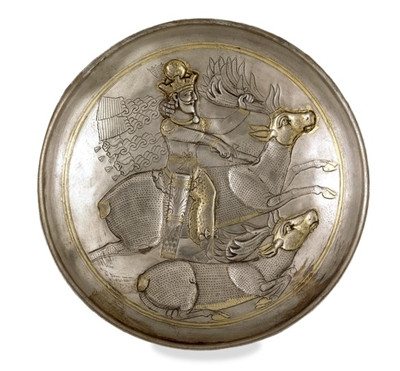Many of you will recognise the resounding opening music of the film 2001: A Space Odyssey-Richard Strauss's symphonic poem,Thus Spake Zarathustra'-but these days most of us are pretty unsure about what Zarathustra actually did speak, or even who he was. Which is perhaps surprising, because Zarathustra, or, as he is more widely known, Zoroaster, was the founder of one of the great religions of the world. For centuries, along with Judaism, Christianity and Islam, it was one of the four dominant faiths of the Middle East. It was the oldest of the four, the first of all the text-based religions, and it profoundly influenced the other three.












